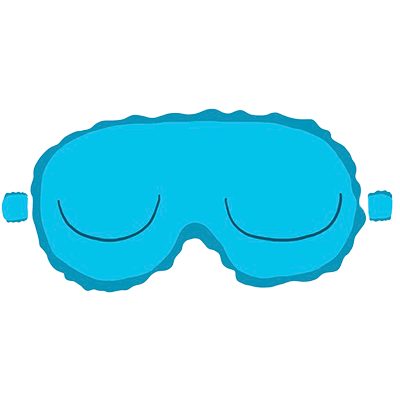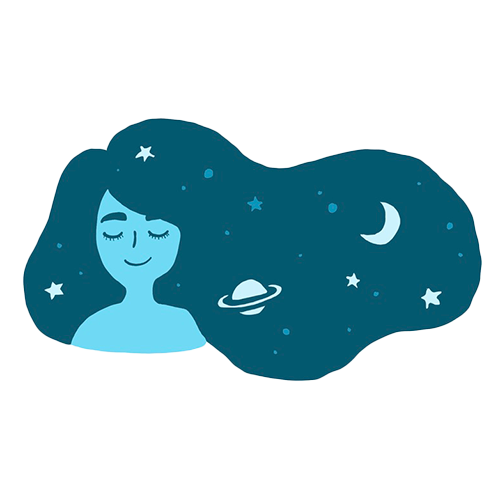Sleep and its stages are the key to dreaming. Although most dreams are forgotten once we wake up, we dream about 3-6 times per night. Each dream is about 5 to 20 minutes long. Dreams could be perceived in different ways depending on the person. Some think nothing of them but others think that they are mystical, symbolic and creative visions. So, what are they really?
Have you ever wondered what your DREAMS are really about?
✯ . · •.✷ • *✸ • ★ * °

Personal Involvement
Hi, I'm Maya! Ever since I was younger, I’ve always had vivid dreams.
I am able to remember on average 4 dreams per night and I've been
keeping a dream journal since the third grade. For as long as I can
remember, I’ve asked myself questions about the meaning of my dreams and slowly started to grow a passion for the study of dreams.
Hover over images and titles to enhance your experience!
✯• ★ * °•.✷ • *• ★
Discover more about ME and my Web Work!
| Maya's Web 2 |
| Maya's Webspace |
Well, dreams can be caused by three main things: the representation of our unconscious wishes and desires, the interpretation of the signals sent by our brain and our body during sleep and the processing of information gathered during our waking lives. In our dreams, elements and images that we see during the day or during the week re-emerge creating a transition between our waking lives and our sleeping state. Here are the two main theories:
Memory Consolidation
The first theory behind dreams is the memory consolidation theory. Dreams are constructed entirely from our memories and they act as a way for the brain to perform offline memory processing. This contributes to the retention of new information and turning short term or fragile memories into long-term memories. It also helps grow our cognitive capabilities… basically the mental action of understanding and acquiring knowledge through different senses and experiences.
Freud's Psychoanalysis
The second theory behind dreams is Freud's psychoanalysis theory. His theory explains that our thoughts, feelings and actions all come from somewhere. Unconsciously, we think about our desires and our fears and how they make us feel. However, we repress them. This meaning that we don't keep them in our conscious mind or make anyone else aware of them. Freud believed that our dreams were just a way for our unconcious mind to bring these repressed ideas, desires and fears to life in order to make ourselves aware of what we feel.
Common Symbols
There are some dreams and symbols in dreams that are common amongst almost everyone. Here is an example that you might be able to relate to. Being chased or running away from someone or something and never getting caught. This is symbolic of escaping from someone who doesn’t stop thinking about you or someone that you can’t stop thinking of, escaping a passion or even an influence. It can also represent physical fatigue and nervousness. There are some elements in our dreams that are general symbols like colours, numbers, archetypes and more. But most things that we see in our dreams are personal symbols such as: emotions felt from a past experience, locations from our waking life attached to emotions or certain events, friends and family members. During sleep, our brain is processing what we saw and heard throughout the day or the past week and that’s why we can identify a lot of every day like qualities, but our dreams remain bizarre because of our unique brain activity while we sleep. Also, whatever we see and hear before bed can influence what appears in our dreams.



Dream Recollection
Why do some people remember their dreams and others don’t? Well, five minutes after we wake up, 50% of our dream is already forgotten and after ten, 90% of our dream is lost. Some are forgotten before we even wake up. Most scientists think that most of the dreams that we remember are the ones that involved a lot of positive or negative emotions. Those dreams are easier for your memory to recover which makes it easier for us to remember. The dreams that are neutral and don’t really evoke any emotion are harder for us to recover once we wake up. Another explanation would be the memory consolidation theory. Just because we don’t remember our dream once we wake up doesn’t mean that we weren’t aware of it while it was happening. The memory probably just didn’t have enough time to turn into a long-term memory.
How could you help dream recall?
Well, you should wake up by following your internal clock instead of an alarm. The minute that you wake up write down the most you are able to remember in a dream journal or in any form of notebook. Put all of your focus into it. Soon, it will become a routine and it will become easier to remember them in the future because of how frequently you practice doing this. If you want to start analyzing the meaning behind your dreams, try to identify what your dream is mainly about and try to point out elements from your everyday life. By doing so, you are revealing to yourself your unconscious emotions and desires.

✷ • *✸ •
If my passion interests you, feel free to find out more about dreams, the neuroscience involved in dreaming and
the sleep stages by watching this video!